- Home
- Haruki Murakami
Underground: The Tokyo Gas Attack and the Japanese Psyche Page 5
Underground: The Tokyo Gas Attack and the Japanese Psyche Read online
Page 5
I didn’t think I was going to die. I’ll bet even Takahashi didn’t think he was going to die. After all, an ambulance was coming to take us to the hospital. I was more worried about my work, what I needed to do.
I was foaming at the mouth. My hands just wouldn’t let go of the towel. That’s when one of the staff members did a smart thing. There were respirators in the office, which Konno took out and put on me and Hishinuma. I couldn’t even hold the mouthpiece in place. My eyes were wide open. Hishinuma somehow managed to hold his own mouthpiece, so my symptoms were worse at that point.
They’d used the only stretcher to carry Takahashi, so there was nothing left for us. Someone went to the Uchisawaicho office to fetch a stretcher from there, and as my symptoms were more serious, they carried me out first. They laid Hishinuma on some sheets and carried him out like that. Then we all waited at the exit for the ambulance.
I was taken to Jie Medical University Hospital, but it was 11:00 the next morning before I came around. I had two tubes shoved in my mouth for oxygen and to keep my lungs working. I couldn’t talk. And I had drips in my neck, feeding something into both arteries. My family was all around.
After that, four of the Kasumigaseki staff came to visit. I still couldn’t speak, so I borrowed a pen. I couldn’t hold it properly, so I clutched it in my hand and somehow managed to write ISSHO, Takahashi’s first name, two simple characters. One of the guys just crossed his hands in an “X.” I knew it was bad news. “Takahashi didn’t make it,” he said. I wanted to ask about Hishinuma, but his name wouldn’t come. I had a mental block. So I scrawled TRANS for “transport staff.” Another two-handed “X.” That’s how I knew he’d lost his life too.
After that I wrote KASUMI. Had any other station attendants been hurt? But they said everyone was okay; I was the one in the most serious condition.
“So it’s only me who survived,” I realized. I still had no idea what on earth had happened, but here I’d been close to death and had survived. The more people worried over me and came to see me, the stronger the realization grew that I’d been saved. I felt happy to have survived and ashamed for what had happened to the others. This put me on edge and that night—the twenty-first, when I regained consciousness—I couldn’t get to sleep. Kids get all excited and can’t sleep the night before a school trip—well, it was like that. I’d been spared, thanks to everyone. They’d pitched in and come to the rescue quick, which saved my life.
I was hospitalized until March 31, after which I convalesced at home for a while, then returned to work on May 2. I gradually got my strength back, but it was a lot harder to get a grip on my mental state. First, I was hardly sleeping. Barely two or three hours, then—bang!—I’d wake up and not be able to get back to sleep. It went on like that for days. And that was the good part.
After that came the anger. I was irritable, irrational, got upset at everything. It was clearly some sort of hyperexcited condition. I didn’t drink, obviously, so I was short of any psychological release. I couldn’t concentrate, either. I feel a lot more relaxed now, but this rage sometimes flares up over nothing.
At first my wife was really careful with me, but it seems I was so demanding over every little thing it became aggravating for her. It was time to get back to work. I wanted to put on my uniform again and be back on the platform. Returning to the job was the first step.
I have no physical symptoms, but psychologically there’s this burden. I’ve got to get rid of it somehow. Of course, when I first went back to work I was scared the same thing might happen again. It takes positive thinking to overcome fear, otherwise you’ll carry around this victim mentality forever.
There were ordinary passengers who unfortunately lost their lives or suffered injuries just because they were traveling on the subway. People who are still suffering mentally or are in pain. When I consider their lot, I don’t have the luxury to keep seeing myself as a victim. That’s why I say: “I’m not a sarin victim, I’m a survivor.” Frankly, there are some latent symptoms, but nothing to keep me bedridden. I’m just glad I survived.
The fear, the mental wounds are still with me, of course, but there’s no way to flush them out of my system. I could never find words to explain it to the families of those who died or who sacrificed their lives on the job.
I try not to hate Aum. I leave them to the authorities. I’ve already gone beyond hatred. My hating them wouldn’t help anyway. I don’t follow the news reports on the Aum trial—what would be the point? I know what’s what without looking. Going back over the circumstances won’t solve anything. I’ve no interest in the verdict or the punishment. That’s for the judge to decide.
MURAKAMI: What exactly do you mean, you know “what’s what without looking”?
I already knew society had gotten to the point where something like Aum had to happen. Dealing with passengers day after day, you see what you see. It’s a question of morals. At the station, you get a very clear picture of people at their most negative, their downsides. For instance, if we’re sweeping up the station with a dustpan and brush, just when we’ve finished, someone will flick a cigarette butt or a piece of litter right on the spot where we’ve cleaned. There are too many self-assertive people out there.
There’s an upside to passengers too. A guy around 50, always travels on the first train of the day, always used to greet me, he probably thought I’d died until I returned to the job. Yesterday morning when we met, he said: “Alive and well means you’ve still got things to do. Don’t give up the fight!” It’s such an encouragement just to get a cheerful greeting. Nothing comes of hatred.
“It’s not even whether or not to take the subway, just to go out walking scares me now”
Tomoko Takatsuki (26)
Ms. Takatsuki lives with her husband at her grandmother’s house in Shibuya Ward, west central Tokyo. But at the time she got caught up in the Tokyo gas attack, the newlyweds were living in the outlying suburbs of Kawasaki to the south.
Their present house in Shibuya is the old family home where her mother grew up. Her grandmother now leases out the upper floor as flats, one of which they occupy. “It’s more convenient here to get into the center of town,” says Ms. Takatsuki, “plus the rent’s cheap.” But her grandmother is quick to add, “My legs aren’t so good anymore, so they moved here to look after me.”
Ms. Takatsuki is a slim, young-looking 26-year-old who could still pass for a student. While she plays down her own trauma—“Why interview me when I escaped unharmed?”—listening to her story it becomes clear that the gas attack still affects her even today. A strong woman, she’s nonetheless not the type to come forward and talk without being prompted. It takes time for her true feelings to come out.
Her tall, silent husband thoughtfully left the room for the interview. They met at a party to which she hadn’t wanted to go, but was urged on by a friend.
My office is in Kamiyacho, so it used to take almost an hour to commute from the house in Kawasaki. I never found it a long journey. An hour’s about average for your typical salaryman.
I get up about 5:30. Eat breakfast, leave the house, get to the office at 7:30. Office hours begin at 9:00, so I have a full hour and a half at my desk to read the newspaper or have a bite to eat.
Well, the trains are crowded. So I leave the house early, around 6:30. I don’t like traveling on crowded trains. And the Odakyu Line, as you’d expect, has plenty of weirdos (laughs). I’ve never had trouble getting up early or anything, I was just a bit late that day.
It’ll be five years this year since I started with the company. I graduated in political economy, but since working here I’ve been assigned to the Systems Department. I had to train for three months … Now I develop in-house software. There are 150 people in our department alone—more men than women.
The day of the gas attack fell between holidays, so only about half the staff showed up for work, but I wasn’t going anywhere so I went to the office-just the same. I usually travel with my husband
, but for some reason I was running late that day and left the house alone.
I got off at Kasumigaseki, where I always change to the Hibiya Line, but the trains were so crowded and there was still time before office hours started, so I thought I’d walk the rest of the way. It’s about a fifteen-minute walk. Then what do I see but a station attendant lying on the platform, in real pain. But the other station attendants were just standing around doing nothing. It was so odd. I stood there off to one side, just watching. Usually I’d have bounded up the stairs to catch my train, but this one time I felt like, “Let’s just give this a moment.”
Soon a station attendant came down the stairs and I thought, “Ah, I’ll bet he’s gone to call the ambulance. Time for me to get going.” Then suddenly I started to feel really bad myself. “Standing here looking at all this has made me ill,” I thought. “It’s affected me”—I mean, women are more susceptible, aren’t they?—so I decide I’d better go straight outside.
I’m up the stairs, but my head’s a total vacuum, my nose is streaming. I’m crying, too. So I think, “Oh no, I’ve caught a cold.” I’m outside by now, but everything looks so dark. “I must be running a temperature,” I thought. I mean, when you’re running a fever, you just sort of space out, don’t you? So I walked on for a bit, but it gradually became more and more painful. I told myself, “I knew I shouldn’t have stood there watching that collapsed station attendant.”
My eyes hurt long after I reached work. The tears and runny nose just wouldn’t stop, and I kept saying, “My eyes hurt! My eyes hurt!”—I raised quite a fuss at the office. It was so painful I just couldn’t work. It was dark inside, too. I glanced over to make sure the lights weren’t switched off. “Strange,” I thought, “how can everything be so dark with the lights on?” It was darker than if I’d been wearing sunglasses. Everyone else said, “It’s not dark at all,” as if they thought I was mad.
Later on the general manager came around asking, “Anyone here feeling ill?” I told him my eyes hurt and they’d mentioned the same symptoms on TV, so he told me to go to the hospital. But they still didn’t know at that point it was poison gas. Some sort of explosion on the subway, was all they could say … There was one other person in the company who suffered injuries a lot worse than mine—hospitalized for a week, apparently.
As it turns out, sarin hadn’t been planted on the train I took, I’d inhaled it at the station. I couldn’t tell at the time. It was in the train across the platform. I was at the rear of the train and the sarin was at the front of the train opposite me. So when I got off my train I was right there … Talk about bad luck. That station attendant died, you know.
But when I left the station at that point, there was no ambulance and everyone was walking around like normal. You’d never have guessed anything was wrong. There was only that station attendant who keeled over. I thought he’d had a heart attack or something. If the station attendant hadn’t been lying there, I might have just walked on by without noticing a thing.
Anyway, my eyes hurt, so I knew I ought to see an eye doctor. I didn’t know what to expect. I went to an ordinary local eye clinic, but the doctor took one look at my eyes and said: “Nothing to worry about. The pupils are just a little contracted, that’s all.” “But it hurts,” I said. At which point the senior doctor came out and said: “Hmm. This is bad. Better get to a major hospital.” So I took a taxi to Toranomon Hospital, because it’s the nearest. But by then the hospital was swamped with hundreds of people, and they directed me to the Jie Med. School instead, but in the taxi I heard on the news that that was full up, too. Okay, what about St. Luke’s? Full up as well… So what am I supposed to do?
About this time someone came along and said: “What about Teishin?” Teishin Hospital in Gotanda, affiliated with the Ministry of Communication. It probably wouldn’t be so crowded. By then we knew from the news that the cause was sarin. But what did that mean? How was I supposed to be treated for it? Even the doctor said, “I really don’t know how I can help you” (laughs). The eye clinic had washed my eyes, just in case, which seemed to help. So I told the doctor and he said, “Okay then, let’s wash everyone’s eyes” (laughs). The staff at the hospital said, “We don’t know about this, but it’s worth a try.”
Another good thing was, as soon as I got to the office I changed my clothes. At our company we wear uniforms. This seemed to help. Later they ran blood tests and put me on a drip. They decided I should be hospitalized. I was feeling really nauseated, plus my insides never were the greatest in the first place. I thought they’d finally packed up. The nausea went away after a while, but my eyes still hurt and I had a fever.
I was only hospitalized for a day. My husband came to see me, all worried. I didn’t have a clue what was going on. My eyes hurt, so I couldn’t watch TV, couldn’t leave my hospital room. I was out of touch. Still, I felt quite secure.
The twenty-first was a holiday, so I went to work on the twenty-second, but I couldn’t sit ten minutes in front of a computer screen. “I’m off,” I said, and just went home. They didn’t know whether to believe me at the office or not. It was like, “Well, whatever you say.” I told them that was hardly a nice attitude, but then it was, “Well, how are we supposed to know?” Okay, the symptoms weren’t pronounced, but still …
For a whole week I was like that and couldn’t do any work. I’d try to look at something and just couldn’t focus. It was all a blur. When I tried to explain it to someone, all I’d get was, “But your eyes never were that good, were they?”
I went to the hospital several times, but my pupils just weren’t returning to normal. It took about a month. Even now they still hurt a bit. Hmm, I wonder. Sometimes I still worry. No, it’s not that my eyesight’s ruined. My vision isn’t especially bad. It does affect my work, though. Still, I’m glad it’s just my eyes.
Afterward people who’d been injured were scared to go on the subway, or so I hear from reports, but that really wasn’t the case with me. Maybe it’s because the sarin wasn’t on my train. Two days later when I took the subway to work in the morning I didn’t feel especially wary. There were others with me in the car, and—how can I put it?—it lacked reality for me. Someone right in front of me on the platform had died, but it still wasn’t real.
I get a lot of headaches. I suppose it’s on account of the sarin, but then I always did get headaches, so who knows? Only the frequency of my headaches has increased … That and when my eyes get tired, I begin to feel nauseated. That’s the most unsettling thing of all. There’s just no end to it once you start thinking, then you have to tell yourself, “No, that has nothing to do with it.” On TV this doctor said, “Once the symptoms go away, there’s no fear of aftereffects,” but who really knows yet? I just hope nothing shows up later.
Of course it irritates me. I don’t see why the criminals should be pardoned. I’d just like to know what they thought they were doing. I’d demand a full explanation and an apology. I’d absolutely insist on it.
I might easily have died there, I do think about that. I’m still nervous going out alone. It’s not even whether or not to take the subway, just to go out walking scares me now. So now whenever I go out, I try to go with my husband. Is this a psychological aftereffect? … But I do often wonder, maybe I will die. I was always the nervous type and thinking like this doesn’t help, it gives me knots in my stomach.
My husband is really worried about me, maybe more concerned than I am. He says I was discharged from the hospital so quickly, perhaps I should have stayed longer. Whenever anything happens, he blames it on the sarin. I’m glad he’s here for me. I wish we had more time to spend together, just the two of us. During our morning commute when we split up at the station, I think, “Oh, I don’t want to go off alone.” Since that day, we’ve never had a fight. We used to before, over anything. Lately I wonder, supposing we parted at the station after having a fight and something happened—what would I do?
“The day after the gas attack, I asked my
wife for a divorce”
Mitsuteru Izutsu (38)
Mr. Izutsu works as the shrimp import buyer for a major trading house, but originally he was a sailor. After graduating from Tokyo Merchant Marine University, he sailed foreign sea routes until a severe recession in the shipping industry persuaded him to cut short his seafaring career at 30 and take a desk job at a shrimp import company. After seven years, he changed jobs to his present company as its shrimp specialist.
Seafood imports command higher prices than meat, but market values fluctuate greatly, making it a risky, make-or-break business. It requires a fair amount of overseas experience. Mr. Izutsu was never particularly drawn to the shrimp business, but his interest in foreign-related work gave him an opening into the fisheries trade. Actually, two years ago, when he left his last job, he wanted to start his own company and went to his present firm in the hope of raising capital. “Can’t be too optimistic, now that Japan’s Bubble has burst,” they told him. “But perhaps you’d consider working with us for a while?” And so he became a salaryman. It’s not your typical résumé.
This means his outlook is subtly different from that of the usual company man. Talk to him and you sense his fiercely independent spirit. He speaks his mind, though is never overbearing. He simply has his own way of thinking and likes to think things through to the end.
He practiced judo at the university, and still keeps in shape. Youthful in appearance, he dresses neatly and has a penchant for smart ties. All in all a striking individual—who one morning just happened to be gassed on the way to work.
I live in Shin-maruko now, but back then I lived right in Yokohama at Sakuragicho. My office is in Kokkai-gijidomae, right in the heart of Tokyo, so I take the Toyoko Line, which connects to the subway. Work starts at 9:15, but I generally try to get there good and early by 8:00. At that hour the trains aren’t so crowded and there’s no one at the office, so I can get some work done in peace. I wake at 6:00: my eyes just snap open automatically. I’m a morning person, so I’m not much of a night owl. Unless there’s something going on, I’m asleep by ten in the evening. Although there aren’t many nights when there’s “nothing going on.” There’s overtime and business dinners, and I go out drinking with the guys from work too.

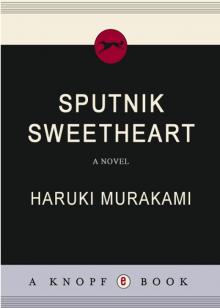 Sputnik Sweetheart
Sputnik Sweetheart Dance Dance Dance
Dance Dance Dance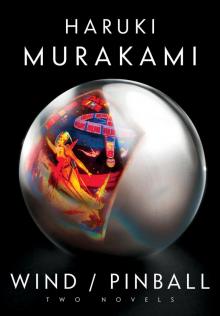 The Wind (1) and Up Bird Chronicle (2)
The Wind (1) and Up Bird Chronicle (2) Blind Willow, Sleeping Woman
Blind Willow, Sleeping Woman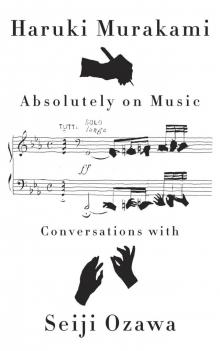 Absolutely on Music: Conversations With Seiji Ozawa
Absolutely on Music: Conversations With Seiji Ozawa Norwegian Wood
Norwegian Wood South of the Border, West of the Sun
South of the Border, West of the Sun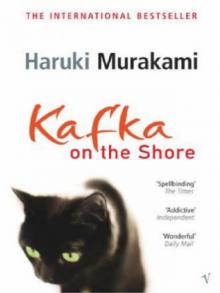 Kafka on the Shore
Kafka on the Shore Men Without Women
Men Without Women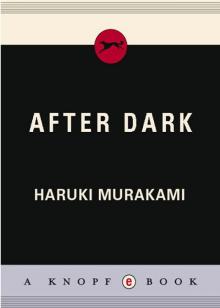 After Dark
After Dark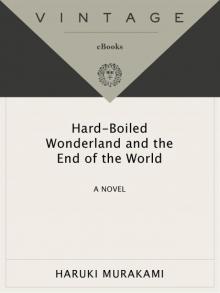 Hard-Boiled Wonderland and the End of the World
Hard-Boiled Wonderland and the End of the World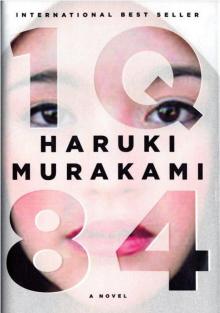 1q84
1q84 The Wind-Up Bird Chronicle
The Wind-Up Bird Chronicle Underground: The Tokyo Gas Attack and the Japanese Psyche
Underground: The Tokyo Gas Attack and the Japanese Psyche Vintage Murakami
Vintage Murakami The Elephant Vanishes: Stories
The Elephant Vanishes: Stories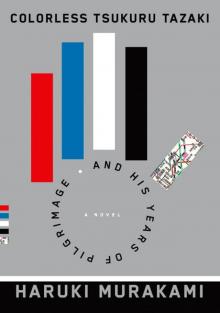 Colorless Tsukuru Tazaki and His Years of Pilgrimage
Colorless Tsukuru Tazaki and His Years of Pilgrimage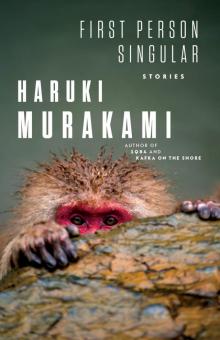 First Person Singular
First Person Singular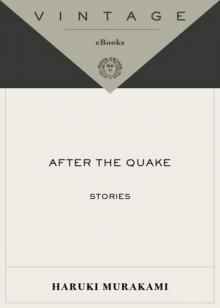 After the Quake
After the Quake A Wild Sheep Chase
A Wild Sheep Chase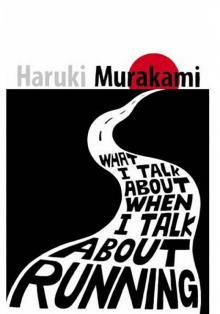 What I Talk About When I Talk About Running
What I Talk About When I Talk About Running Birthday Girl
Birthday Girl The Elephant Vanishes
The Elephant Vanishes Norwegian Wood (Vintage International)
Norwegian Wood (Vintage International)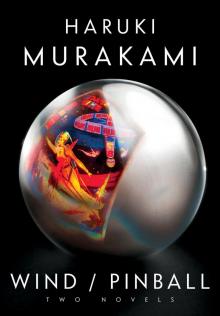 Wind/Pinball
Wind/Pinball Norwegian Wood Vol 1.
Norwegian Wood Vol 1. Underground
Underground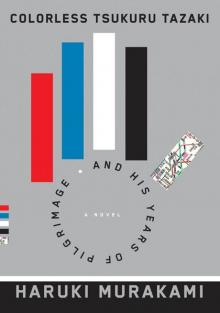 Colorless Tsukuru Tazaki and His Years of Pilgrimage: A novel
Colorless Tsukuru Tazaki and His Years of Pilgrimage: A novel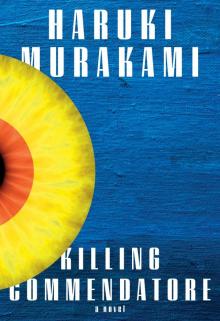 Killing Commendatore
Killing Commendatore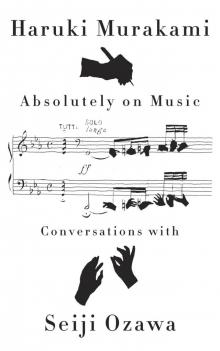 Absolutely on Music
Absolutely on Music